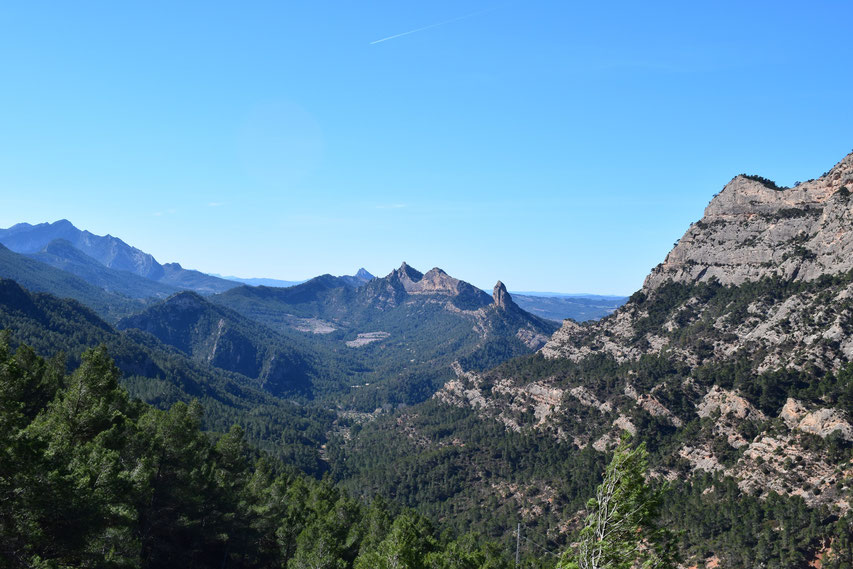
Had it not been for the gloom, I would have liked to stay beside Pantà de Rialb longer in the eerie silence, but we chased the promise of sunshine South. Skirting around Lleida, we followed a succession of steadily diminishing roads, looking for a blank spot on the map, as if paddling upstream to the source.

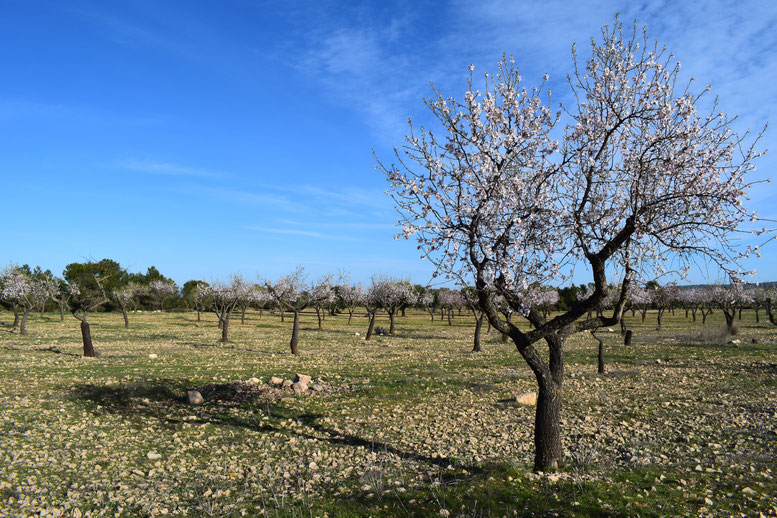
From unpromising industrial zones, our surroundings turned to scrubby mountains and eventually onto a dubious mud track promising "Punta de Duc"(?!). Only just wider than Burt, with blossoming fruit trees either side, this track was one of no return and I got out to run ahead in fear that we might get stuck for the foreseeable future. Almost laughably, ten minutes along, there was another small "P" indicated to the left, so we ploughed ahead hoping it wasn't a huge cultural misunderstanding.
Punta de Duc, where you should not camp, but we did without leaving a trace, was described on the helpful information board as having been used as a Republican fortification against the Nationalists in March 1938 of the Spanish Civil War, until it was overrun and the defenders were forced to retreat across the river Ebro. There are still remnants of hollowed out bunkers in the rock, trenches and various military buildings across the river.

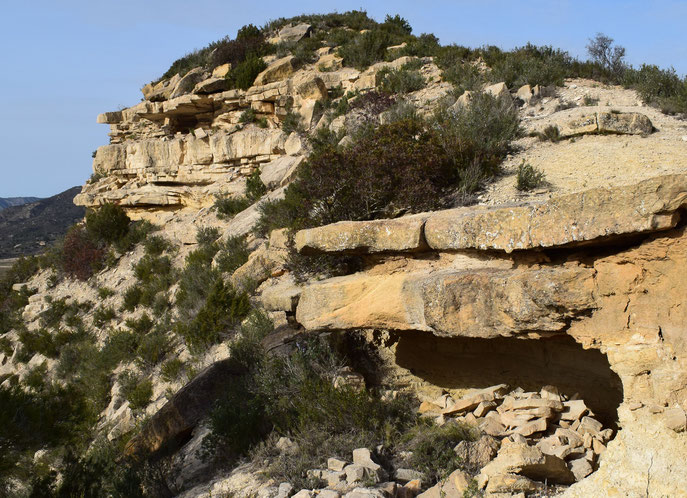
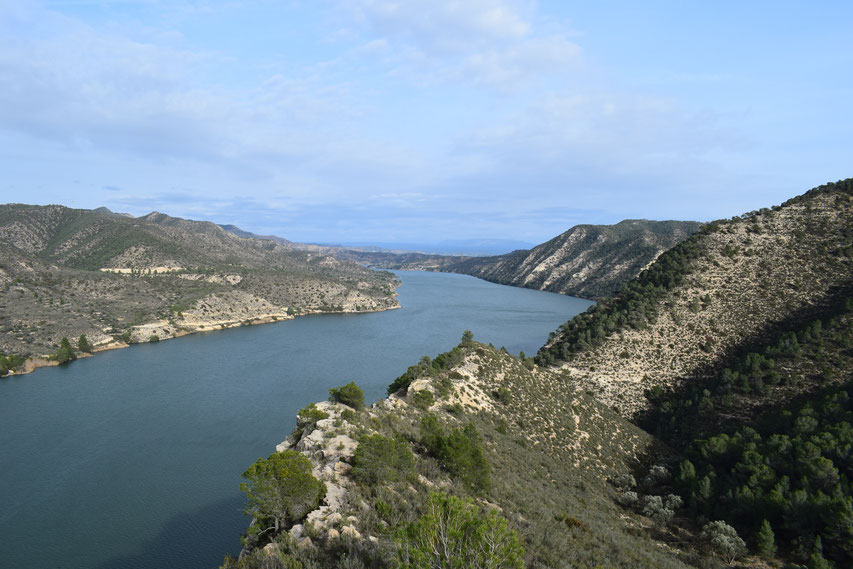
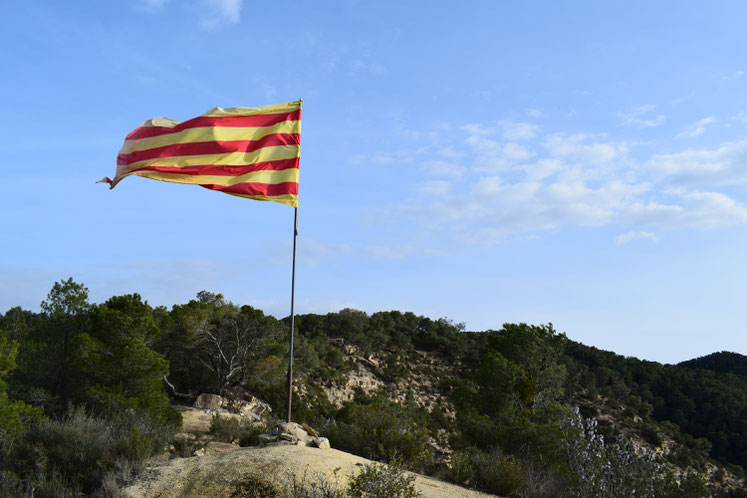
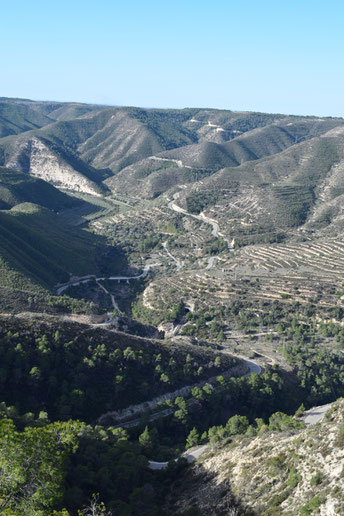
Knowing our goal, tarmac, our morning's escape was less dramatic than the way in. Now realising where we were, we pulled off the still frankly terrifying "TV-7411" road (previously defended route from Riba-roja d'Ebro to la Pobla de Massaluca), with its sheer drops and hairpins, towards another site of importance.
The trenches at Berrús (les trinxeres de Berrús) are remarkably well preserved considering there are no barriers to restrict access and you can walk freely around the relatively complex network, admiring the view which comes free with a tactical advantage.
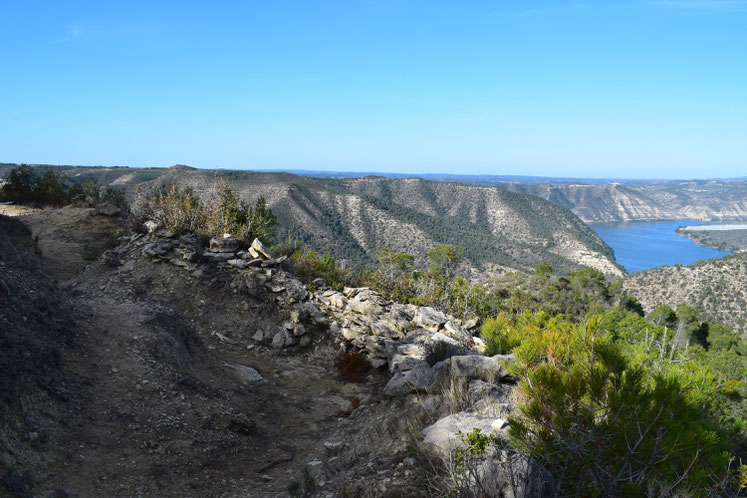
In the small town Flix, we caused everybody a great deal of confusion; finding ourselves shepherded around an apparently one-way supermarket, trying to explain the dimensions of the gas canister I needed in Spanish as the friendly shop attendant pulled out everything apart from that particular one in baffled succession and by generally seeming to be the only people there not known by name to everyone else. The locals looked extraordinarily happy that particular Saturday and I wondered if this was the first bright sunshine of the year or if small town country life was always this enthusiastic.
A little further South, we took a small road in the direction of "La Fontcalda", which I misread as "Fortunalda", thinking it might bring us good luck. After eight kilometres of hairpins which made the TV-7411 seem like your garden path, rockfalls on one edge and a gravelly precipice the other, the smell of Burt's brakes left me feeling quite fortunate to have made it down the right way up. At the bottom, there was a gorge melted out of the rock by a river where I spied a crayfish underwater and pointy toe-like mountains all around. We were in a circular valley and when the sun set, the starry sky appeared as a jaggedly ripped window in the surrounding darkness. It was blissfully quiet.
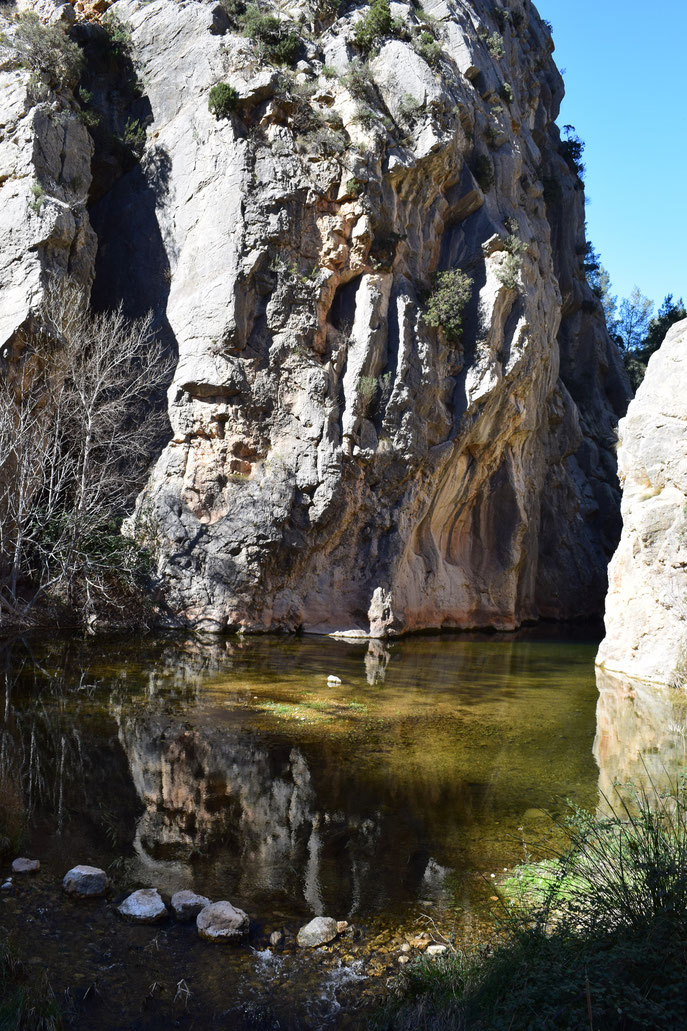



On Sunday afternoon, when nothing but McDonald's is open for toilets and wifi, we (Dan...) locked both sets of keys inside the van in the car-park. With nothing but a couple of euros and our laptops, this seemed like a rather hopeless predicament, but Dan set to work trying to squeeze my shoelaces between the door and its frame in the hopes of lassoing the knob. This was no use, as wasn't trying helplessly to paw at the window or kicking the tires in frustration.
He was just trying to use the back of his phone to wedge open the crack a little when an excitable Irish man jogged over to help. With several mysterious metal implements and a pen, he could force the door out just enough to slide my shoelaces through the gap and begin fishing. By now a selection of self-congratulatory McDonald's customers were observing from the outside seating area, obviously having decided that two men and a miserable looking girl in a dress would be unlikely to be trying to break into a van as crusty as Burt in this particular setting. I would hazard a guess at ten attempts at this method, but eventually the knob was hooked, the noose tightened and gently, gently pulled up.
Another crisis averted and we were on our way to the beach.
For previous legs of this journey try the UK to Switzerland, Morgins in Switzerland, France
or Pantà de Rialb.
For other accidental historical encounters, you might enjoy reading about Ayacucho to Cusco, Peru.

